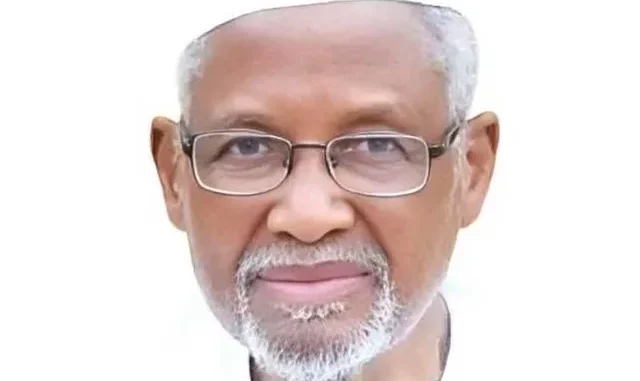
Former Senate President, Bukola Saraki, Emir of Kano, Muhammadu Sanusi II, among others, have celebrated the legacy of late Alhaji Aminu Dantata, one of Nigeria’s most iconic entrepreneurs.
They spoke during the public presentation of two books authored by his son, Munzali Dantata, namely: ‘Behind the City Wall’ and ‘Aminu Dantata and the Life and Times of a Nigerian Entrepreneur’, which chronicled the life, values, and business philosophy of the late patriarch.
The books offered rare insights into the evolution of one of West Africa’s most enduring business dynasties.
The event drew dignitaries, scholars, traditional rulers, politicians, business leaders, and captains of industries who paid glowing tributes to the Dantata family’s century-long contribution to commerce and philanthropy.
Power Of Favour? (Silent, Powerful, Spiritual) Don’t miss out on your desires. You are not the only one pursuing them. Command power of favour to achieve your heart desires: In your undertakings. Work. Job. Career. Profession. Business. Politics. Workplace. Powerful position. Patronage. Selling. Contract. People/ crowd. Global fame. Love matters. Etc.. Spiritual Consultation On: Spiritual power of favour over efforts alone for desired outcome. Overcome delay with power of favour. Overcome rejection with power of favour. Other matters. For Spiritual Consultation, Guidance, Contact: DR. J.A FAROS: Call/ Whatsapp: 0 7 0 3 0 5 1 4 0 6 3. Sango-ota. Lagos. Nigeria. Distance no barrier( 3 options) By Unlimiting Power of God, Every Dream materialized.
At the Abuja event, Saraki described knowledge as the most powerful instrument for building a just and prosperous society.
“I am delighted to be here today to celebrate my dear friend and brother, Munzali Dantata. His works reflect a deep understanding of our society and a lifelong dedication to education and the pursuit of knowledge. These new books are a testament to his restless intellect and passion for progress,” Saraki said.
He commended Dantata for his contributions to scholarship, entrepreneurship, and public service, describing him as “a shining example of intellectual excellence and commitment to national development.”
Saraki urged young Nigerians to emulate Dantata’s example by blending scholarship with service to humanity, adding that knowledge remains the most powerful tool for creating a fair and progressive society.
Also speaking, the Emir of Kano, Sanusi II, emphasised the importance of documenting history. “If we do not write our history, others will write it for us,” he said.
Sanusi, who served as Father of the Day, noted that the story of Kano’s greatness could not be complete without acknowledging the contributions of its legendary business families like the Dantatas while also sharing a personal story involving his late father and Alhaji Aminu Dantata.
“When Munzali came to me and told me about these books, I said to him, we need to write our own story. This is what we do not do enough of, especially in this part of the country.
“The history of Kano is not complete without the history of the established business and commercial families that built that economy over centuries. Works like these may be biographies, but through them, we see the story of an entire society.
“That act of generosity defined him for me. I will never forget those who were kind to my parents. We are here not only to celebrate a man and his family, but to celebrate Kano, a city built on a culture of excellence and a determination to be the best in everything, scholarship, commerce, or tradition,” he narrated.
Delivering Governor Abba Yusuf’s goodwill message, Kano State Commissioner for Information and Commerce, Adamu Kibiya, praised Dantata’s literary efforts.
“The two books before us are modern literary works, records of memory, identity, and heritage. They remind us that Kano has for centuries been a centre of commerce, scholarship, and culture,” he said.
He described the late Dantata as “one of Nigeria’s greatest entrepreneurs, industrialists, politicians, and philanthropists whose life embodied vision, discipline, and generosity.”
Guest speaker, Prof. Muhammad Tawfiq Ladan, a renowned scholar of regional economic integration law, analysed the Dantata business model, situating it within the broader context of African trade and development.
“Everybody has been presenting the Dantata business model and Alhaji Aminu Dantata in the context of Kano and Nigeria. But as a professor of regional economic integration law and practice in Africa, I would like to briefly put it in the context that the Dantata business model was essentially a cross-border trade model,” he said.